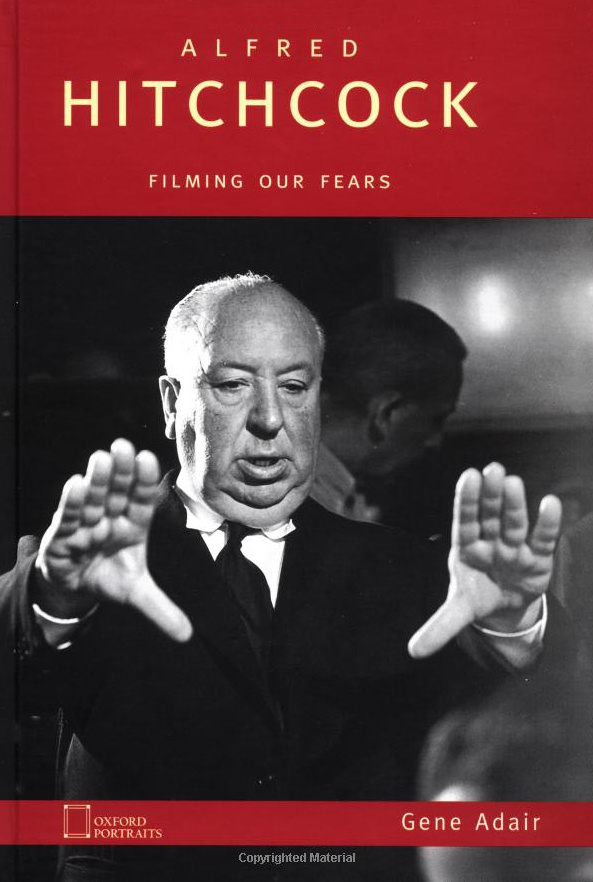Alfred Hitchcock: Filming Our Fears (2002) by Gene Adair
 | |
| Gene Adair | |
| Oxford University Press (2002) | |
| ISBN 0195119673 | |
| Amazon Online Reader | |
| LibraryThing | |
Product Links
paperback:
Synopsis
Alfred Hitchcock is a fascinating look at the life of one of the most influential filmmakers in the world -- a man known for his portly profile and distinct, leery voice almost as much as for his groundbreaking movies. From Hitchcock's first film, Blackmail -- the first British movie with sound -- to his blockbuster Hollywood successes, Psycho, The Birds, Rear Window, and Vertigo, Alfred Hitchcock chronicles the Master of Suspense's close working relationship with his wife, Alma, who was an integral part of his filmmaking process, and the struggle to gain full artistic control over his work. With illustrations throughout and sidebars showcasing techniques and directing style, Alfred Hitchcock reveals how some of the greatest films ever created came to be through the life and work of one of the most admired filmmakers ever.
Reviews
Grade 7-10-This concise biography looks at Hitchcock's early life as well as his legendary career, which spanned five decades and produced some of the most famous and critically acclaimed movies made. The book begins with the filmmaker's childhood in London's working-class East End and goes on to discuss his apprenticeship during the silent-film era; early directorial efforts; transition from English film to American; fame as a visionary, artistic filmmaker; and amiable personality. Adair examines significant relationships in his subject's life, as well as career trademarks such as his use of doubles and his tendency to combine suspense with humor. These trademarks are discussed in connection with movies such as Strangers on a Train, Vertigo, and North by Northwest, creating an overview of Hitchcock's films as a unified body of work. Black-and-white photographs from his life and movies are included. The brief nature of this book does not allow for in-depth analysis of individual films, but the accessibility of the writing and inclusion of valuable information make it a good introduction for its intended audience.
— School Library Journal
